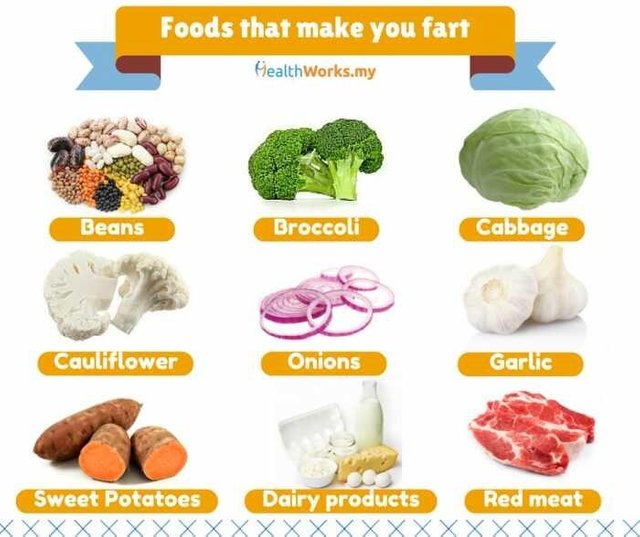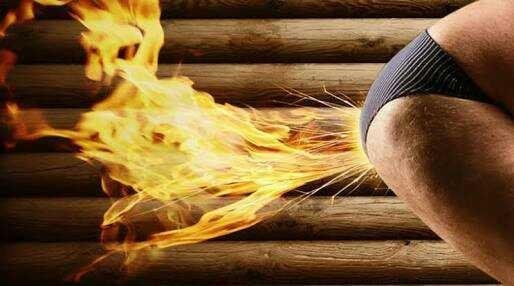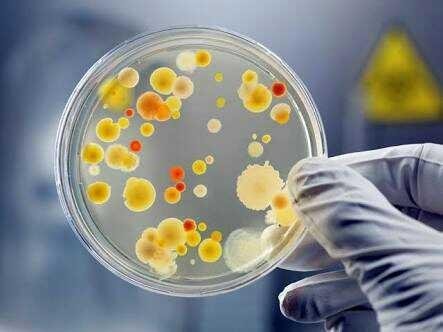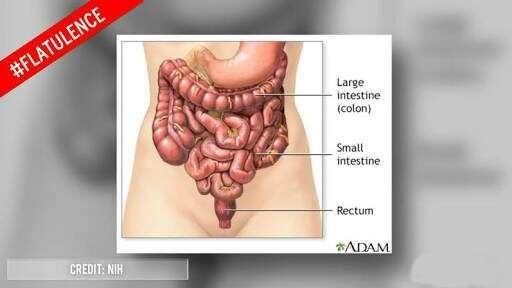FARTS AND IT'S IMPORTANCE
Why are we farting?
The fart is the consequence of the expulsion of gas present in the body , usually by the anus, sometimes accompanied by a noise and very often an odor.
Indeed, after eating, we digest: during this process, the food is degraded in our body. This decomposition produces gastrointestinal gases that accumulate in the stomach or intestine: this is called flatulence .
Voluntarily or not, we have to expel these gases. They can escape through the mouth ( the burp ) or through the anus ( the pet ). There may be a noise , which varies depending on the compression of the buttocks and the vibration of the sphincter (the muscle that can close the anus).
As for this is due to the presence of sulphurous odorous gases. But the pet is also composed of nitrogen, oxygen, carbon dioxide, hydrogen and sometimes methane.

image source
Some foods have a degradation that favors the production of gas, such as beans, lentils, potatoes, red meat, pasta, corn ... That's why they are often said to fart. To limit the production of intestinal gas, it is recommended to consume spices such as cumin or coriander, or products containing live microorganisms, such as yogurts or cereals.
Everyone is farting. But here are very surprising things about flatulence, which you probably did not know!
Whether you try to hide it or not, you're bad. Everyone is farting. It's like that. But even if it's an incredibly banal and routine thing - a average human being fart between 10 and 20 times a day - there are many things about farts that you may not know.
By carrying out research on the microbiome (all these fascinating biodiversity bacteria that swarm by the billions inside your body) scientists have learned all kinds of interesting things about the small organisms that produce this famous gas, nestled in the hollow of our intestines.
important things to know about flatulence
1: You produce on average between 500 and 1,500 mililiters of gas a day, which you evacuate in 10 to 20 farts
Eh yes ! it's probably more farts than you imagined, but know that it was measured in rigorously controlled studies. This is due to bacteria squatting your colon and eating most of the food you ingest.
In fact, there is a lot of the stuff that makes up the things we eat, especially carbohydrates, that our body is simply unable to digest because of lack of specialized enzymes. As a result, microbes take the opportunity to eat free, while helping us to evacuate this waste, it's win-win. On the other hand, in return, they produce gas when they digest these foods.
That's why beans (rich in carbohydrates) make farting, while other foods do not. Depending on what you eat, and depending on the characteristics of your bacterial flora, you can fart between 500 and 1,500 ml of gas per day!
2: 99% of the gas you produce feels absolutely nothing
No, it's not a joke. This is even the reason why you were probably surprised by the previous point: it is often not even realized that one fart, because the gas that constitute our flatulence is almost entirely odorless.
In fact, what really causes the characteristic smell of farts is the sulfur. And that's just 1% of the gases we evacuate! That said, some foods tend to produce more sulphurous gas, so to produce farts that smell stronger. This is the case of onions, Brussels sprouts, beans, broccoli ...

image source
3: Soft drinks, beer and chewing gums can make you fart more.
In addition to the gases produced by the bacteria, a good part of your farts is simply air, which you have swallowed without doing it on purpose. Of course, it does not smell - it's mostly hydrogen and oxygen - but it makes the same noise when it comes out ...
We swallow air when we sleep, but also by drinking soft drinks (since we also swallow the gas from these drinks) and by chewing gum.
4: The farts are proof that you have a healthy, rich and complex ecosystem in your intestines.
Modern society perceives flatulence as a negative and shameful thing. That's a shame, because it's really the simple consequence of something absolutely beautiful - the presence of a real small world within us, made up of a rich and complex ecosystem, that also allows us to to live.
Yes, your intestines are a miniature jungle that you take everywhere with you. Thus, some bacteria feed on other bacteria. Others feed on what you ingest, and still others feed on foods that are transformed by the former.
And the best part of all this is that you too benefit from it. Scientists are far from having discovered everything about the role of microbial digestion, but we already know that these same bacteria that make you fart also produce vitamins and fatty acids that allow us to keep the inside of our intestines in shape. , and promote our immune system. So, let's be proud of our farts!
5: There is a very simple reason why you tolerate the smell of your own farts, but not those of others.
This is the same reason you immediately notice a different smell when entering someone else's home, but you do not smell at home: over time, you get used to the smells, to the point that we hardly notice them anymore.
The fact that we appreciate or not an odor is also intimately related to our mind: We even learn to appreciate certain tastes over time, that's why we end up looking for the bitter taste of coffee by dint of drinking, or the typical taste of a well flowing camembert. These smells are not pleasant "at the base", but we end up loving them by dint of being confronted.
That's why you get used to the unique and unique odor mix that is produced by your intestinal flora, and that will never be quite the same as everyone else's.
As a result, your pets do not have the same effect on you - even if they will always feel bad for those around you ...
6: Yes, you can ignite a pet with a lighter.

image source
Since flatulence is largely composed of flammable gases, such as methane and hydrogen, they can ignite briefly.
We do not recommend attempting the experiment, as the risk of backfire can cause bugs, and especially very painful. But if you really want to see how it feels, this video should do the trick!
7: No, you can not refrain from farting until it "disappears".
It should make sense, but strangely, people are really asking the question. It is true that sometimes, after stopping to fart for a moment for social reasons, one ends up having the impression that he has disappeared.
However, it is strictly impossible. You may have the "impression" that the urge to fart goes on, because you stop being aware of it, and your fart flee little by little, but the physical laws that govern farts are unfortunately inflexible: A fart is a bubble of gas, and this bubble has no other place to go than to go out through your anus.
8: Medications for pets and bloating work by starving the bacteria responsible for flatulence.
Just in case you're wondering: Do you know these drugs that prevent flatulence? Well, they really work by preventing the production of gas, and their mode of action is very simple: these drugs contain enzymes that cut complex carbohydrates into shorter, simpler molecules, which are much easier to digest . As a result, the food is digested in the small intestine, instead of landing in the large intestine, where the bacteria would have expected to take care of them (and incidentally produce gas).
9: We must take care of the bacteria responsible for our farts, as the apple of our eyes.

image source
Yes, starving these bacteria daily for no reason is not a good idea at all. In fact, for the vast majority of people, actively trying to limit the production of farts is not necessary, and can even be dangerous. The amount of gas you produce is nothing other than the result of the addition between what you eat and the amount of bacteria you have in yourself, and unless you have real health problems - such as bloating abnormal or painful - it's not at all a good idea to want to interfere, by taking this kind of medicine.
Carbohydrates are necessary, both for our body and also for the survival of bacteria in our stomach. And do not try to starve them, kill them or reduce the number of these bacteria, unless there is a very good reason for that.
In other words, the diversity of our intestinal flora is of crucial importance for our good health, it allows us to digest food properly, to avoid certain diseases, to protect our inner walls and to facilitate transit. In short, we must thank them, and especially take good care!
Finally, know that even if farting is contrary to the rules of etiquette, it is a sign of good health . Conversely.

I upvoted your post.
Best regards,
@Council
Posted using https://Steeming.com condenser site.
I upvoted your post.
Thank you.
@Yehey
Posted using https://Steeming.com condenser site.
Congratulations @stevendion! You have completed the following achievement on the Steem blockchain and have been rewarded with new badge(s) :
Click on the badge to view your Board of Honor.
If you no longer want to receive notifications, reply to this comment with the word
STOP